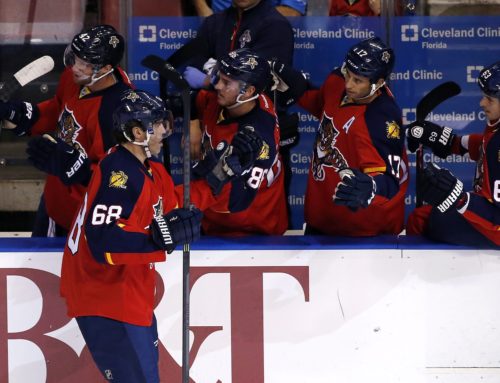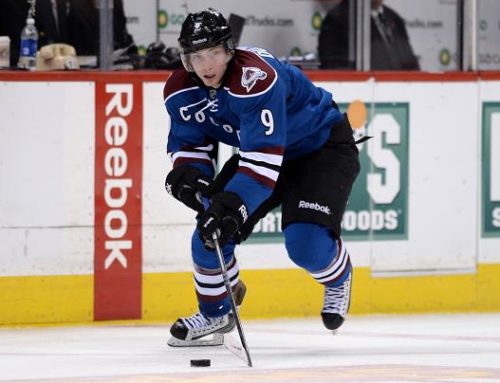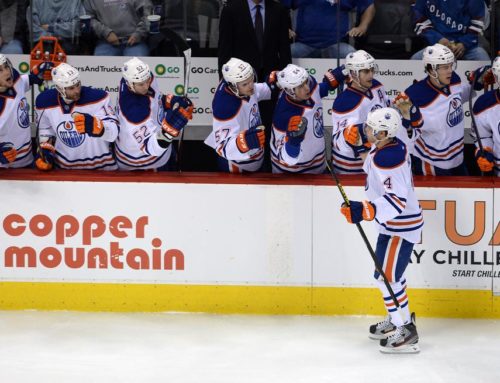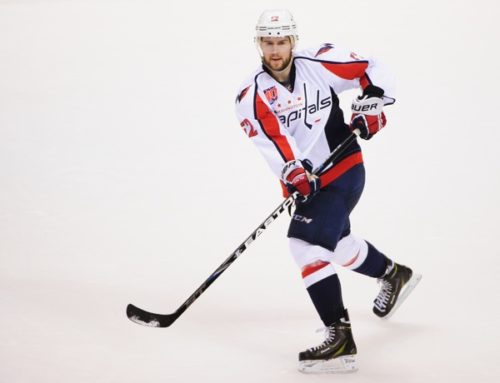2014-15 NHL Standings Projections
steve laidlaw
2014-09-27

Rob takes his crack at the inexact science of projected standings.
Projecting the standings is the first step in preparing for a fantasy draft, but it’s the hardest thing to do. With injuries, roster changes, coaching decisions, rising rooking, declining veterans, and whole lot of puck luck, anything you read in early October is bound to be out of date by November.
Last year, for example, I tracked the predictions of 26 experts of all different types, from well-established mainstream journalists to trusted bloggers, and from those who don’t use stats at all to some of the leading names in the field. The results? As I summarized in Hockey Abstract 2014, "As a group, we "experts" haven’t figured out how to project the standings. At various points in the season, not a single set of projections was more accurate than simply using last year’s standings. In the end, half of the analysts beat last year’s standings, but negligibly in all but three cases (The Hockey News, Chris Morgan, and NBC‘s James Neveau)."
Even though predicting the standings is admittedly a near-futile exercise, I’m going to summarize the popular expert opinion for each division, and then weigh in with my own convictions. My own opinion is based on an interpretation of the team’s player usage chart, and an analytic study of over a dozen factors, including possession, shootout, goaltending, power play, penalty kill, the scoring line, the shutdown line, the forward depth, the top pairing, the second pairing, defensive depth, coaching, and NHL-ready prospects.
As for the popular opinion, I’ve only found 12 experts that have posted their 2014-15 predictions so far, including the Hockey News, the Hockey Forecaster, the official NHL yearbook, Sportsnet, McKeen’s magazine, and several others. Nevertheless, some patterns are already becoming obvious, and very reasonable ones at that.
Don’t look for a definitive ranking, but rather an approximate view of where each team ranks. Almost half of the NHL teams have at least one expert predicting the division crown, for example, and about the same number have at least one expert calling for a last-place finish. One team actually falls into both categories, the Washington Capitals!
Overall, there’s no team that’s an absolutely consensus pick for a particular position in the standings, and there are only three that are within two positions – Boston and Anaheim are expected to finish top two in its divisions, and Winnipeg bottom two in the Central. The other 27 teams have spreads of at least three positions in the standings.
Despite how wide these ranges are, we can actually expect 8 of the 30 teams to fall outside them. Quoting again from last year’s study: "Even with a group this size, there were quite a few teams that everybody got wrong. For instance, nobody had Colorado or Anaheim as high as 1st, Tampa Bay 2nd, or even Calgary 6th. Similarly, nobody predicted Chicago or Los Angeles as low as 3rd, nor the Oilers 7th and the Islanders 8th. That’s 8 of 30 teams finishing outside the range defined by 26 experts."
If I haven’t discouraged you enough, remember that even a rough idea of where teams will finish is better than none at all. Players on good teams will have a better plus/minus, and the goalies will get more wins. Players on bad teams might get more hits, and younger players could get more opportunities.
The Predictions
The Metropolitan division should be the most wide open, with every team except the Carolina Hurricanes having at least one expert arguing for a top-2 finish in the division, and five of the eight teams also being pegged for one of the bottom two positions by other experts. Pittsburgh is the only team being universally respected, although all of the experts do have Columbus as a lower-seeded playoff team, and peg the Islanders as one of the league’s most improved teams.
Rob’s Take: That’s pretty much how I see it too, very wide open. I don’t see New Jersey nor Washington as likely cellar-dwellers, however. The only cautionary note is just how badly things could go for Philadelphia this year, a team for whom I see very little upside.
According to the experts, the race in the Central is also wide open, with the exception of Winnipeg finishing at the bottom, and Minnesota and Nashville being seen as third-place bubble teams at best. Colorado has the widest range of all, being seen as a team that can finish anywhere from first to sixth.
Rob’s Take: Again, that’s pretty how I see it, too. The division crown is extremely likely to go to either Chicago or St. Louis, with a Dallas victory being far less likely. I’m quite firmly on the pessimistic end of the spectrum for Colorado. If a dark horse takes everybody by surprise, my guess is that it’ll be Nashville.





 ANA
ANA PHI
PHI VAN
VAN DET
DET BUF
BUF NYR
NYR MIN
MIN N.J
N.J
